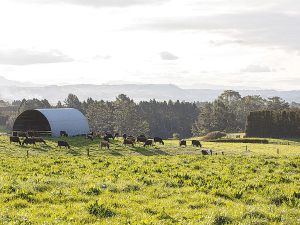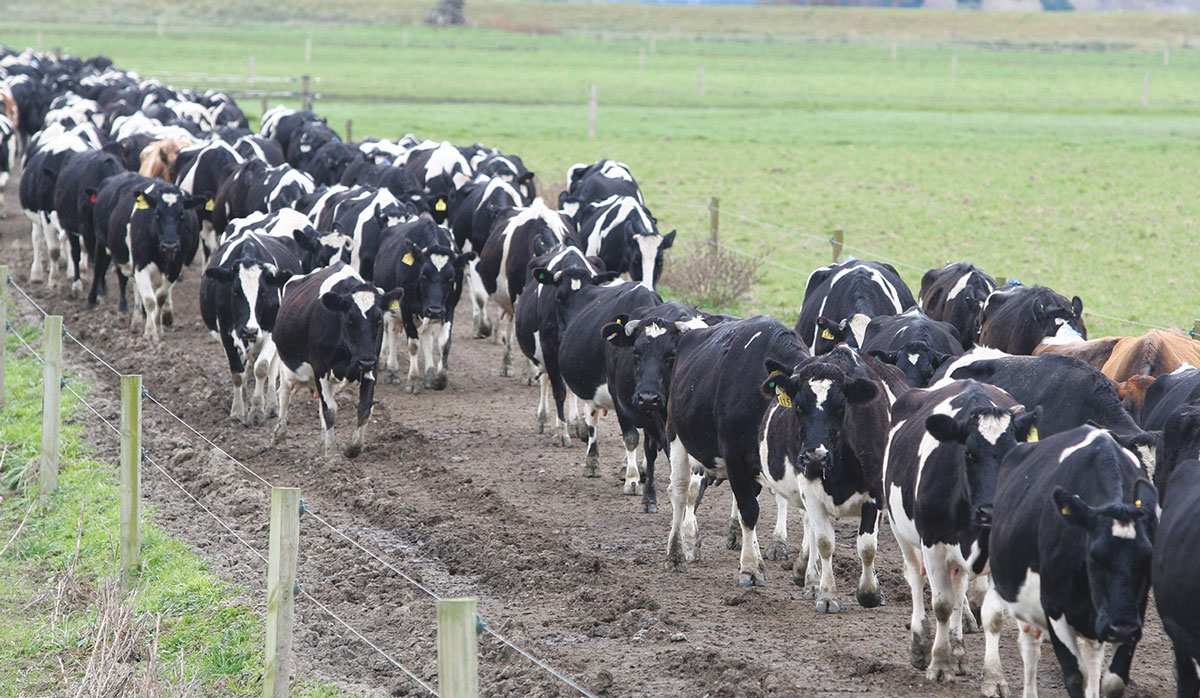Farmer takes a deeper dive into his operation via IFP
North Canterbury farmer Andrew Gilchrist has delved deep into the business and people side of his family-operated farm by completing an Integrated Farm Plan (IFP).
 The three-year pilot study looked at how Integrated Farm Plans help farmers work with consultants to develop practical solutions for managing farms in environmentally and culturally sustainable ways.
The three-year pilot study looked at how Integrated Farm Plans help farmers work with consultants to develop practical solutions for managing farms in environmentally and culturally sustainable ways.
Farmers and rural consultants participating in the Waimakariri district “Next Generation Farming” pilot study, say the process “opened their eyes” to possibilities for improvement in farm businesses, but was also challenging.
The three-year pilot study, which is in its third year, looked at how Integrated Farm Plans (IFPs) help farmers work with consultants to develop practical solutions for managing farms in ways that are environmentally and culturally sustainable, while remaining profitable and financially secure.
The initiative is led by the Waimakariri Landcare Trust (WLT) with funding from the Ministry for Primary Industries’ Sustainable Food & Fibre Futures fund.
IFPs involves pulling together activities many farmers and their consultants already do, but often in separate, unconnected processes.
The idea is to make these processes more effective by bringing them together under one plan.
North Canterbury dairy farmer Harry Meijer says that despite being “on the wrong side of 60”, the integrated process has shown him how improving the human resources side of his business will give better results.
“The initial conversation [with the consultants helping develop IFPs] identified we were on track with our farm and business management,” Meijer says. “However, we had opportunities in our human resources side of things.
“We were interviewed by specialists in that area and some of the questions were quite uncomfortable. But that made us delve a bit more into what we do, especially regarding how I instruct and encourage staff so they can perform at their best,” he says.
“I’ve had lots of great mentors who have given me opportunities as I’ve grown in farming. It’s my role now to give those opportunities to new ones. That means giving space. I’ve grown as a person through this process, because I’ve learned to be less involved, less hung up and step back a bit.”
Sarah Watson, owner of People MAD (People Management and Development) is a specialist in human resource management and is working with WLT on the IFP project.
She says she shares Meijer’s views on the benefits farmers can obtain from improved people management.
“What typically happens with most farms is that they’re really good at seeking advice around the technical stuff they know they need. But often, there are people management and leadership gaps,” says Watson.
“My role is to help farmers see that having good people management processes in place makes it easier for them to focus on doing a good job across the whole of the business,” she says.
 |
|---|
|
John Donkers says he most farmers generally manage their farms well, but aren't good at risk management. |
John Donkers of Dairy Farm Management Services says his experience of the IFP pilot is how often farm owners can be really good farmers but poor business managers.
“I'm constantly surprised at how poorly some farmers run their business. Not their farm - but their farm business,” Donkers says.
“The irony is that they get up every day and manage the risk of the weather. Most farmers generally do this pretty well. But in terms of risk management, that's where it stops. They don't apply those same skills to a whole lot of other areas of their business, such as people management and environmental, animal welfare, and financial risks.”
He says that while he focuses on risk management, the positive side of this is that by identifying and managing risk properly, opportunities are also revealed.
“I ask farming couples and families, ‘are you having the right conversations? Do you talk about the performance of your business and how you might improve and how you might manage risk?’”
In an analysis of the IFP pilot to date, ASB Area Manager Tom Norris said that longer-term risk analysis across IFP areas is not being undertaken well.
“Consultants and advisors are not being used to their full potential. They are not being asked to challenge and push the farmers,” Norris says.
The advantage of the IFP process, he said, was that it was full of challenging questions, causing farmers to consider things in ways they might not have considered previously.
“Farmers who have undergone the IFP process say they will actively encourage others to take up the opportunity in the next round of IFP’s to be completed.”
Legal controls on the movement of fruits and vegetables are now in place in Auckland’s Mt Roskill suburb, says Biosecurity New Zealand Commissioner North Mike Inglis.
Arable growers worried that some weeds in their crops may have developed herbicide resistance can now get the suspected plants tested for free.
Fruit growers and exporters are worried following the discovery of a male Queensland fruit fly in Auckland this week.
Dairy prices have jumped in the overnight Global Dairy Trade (GDT) auction, breaking a five-month negative streak.
Alliance Group chief executive Willie Wiese is leaving the company after three years in the role.
A booklet produced in 2025 by the Rotoiti 15 trust, Department of Conservation and Scion – now part of the Bioeconomy Science Institute – aims to help people identify insect pests and diseases.

OPINION: The release of the Natural Environment Bill and Planning Bill to replace the Resource Management Act is a red-letter day…
OPINION: Federated Farmers has launched a new campaign, swapping ‘The Twelve Days of Christmas’ for ‘The Twelve Pests of Christmas’ to…